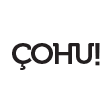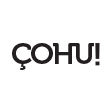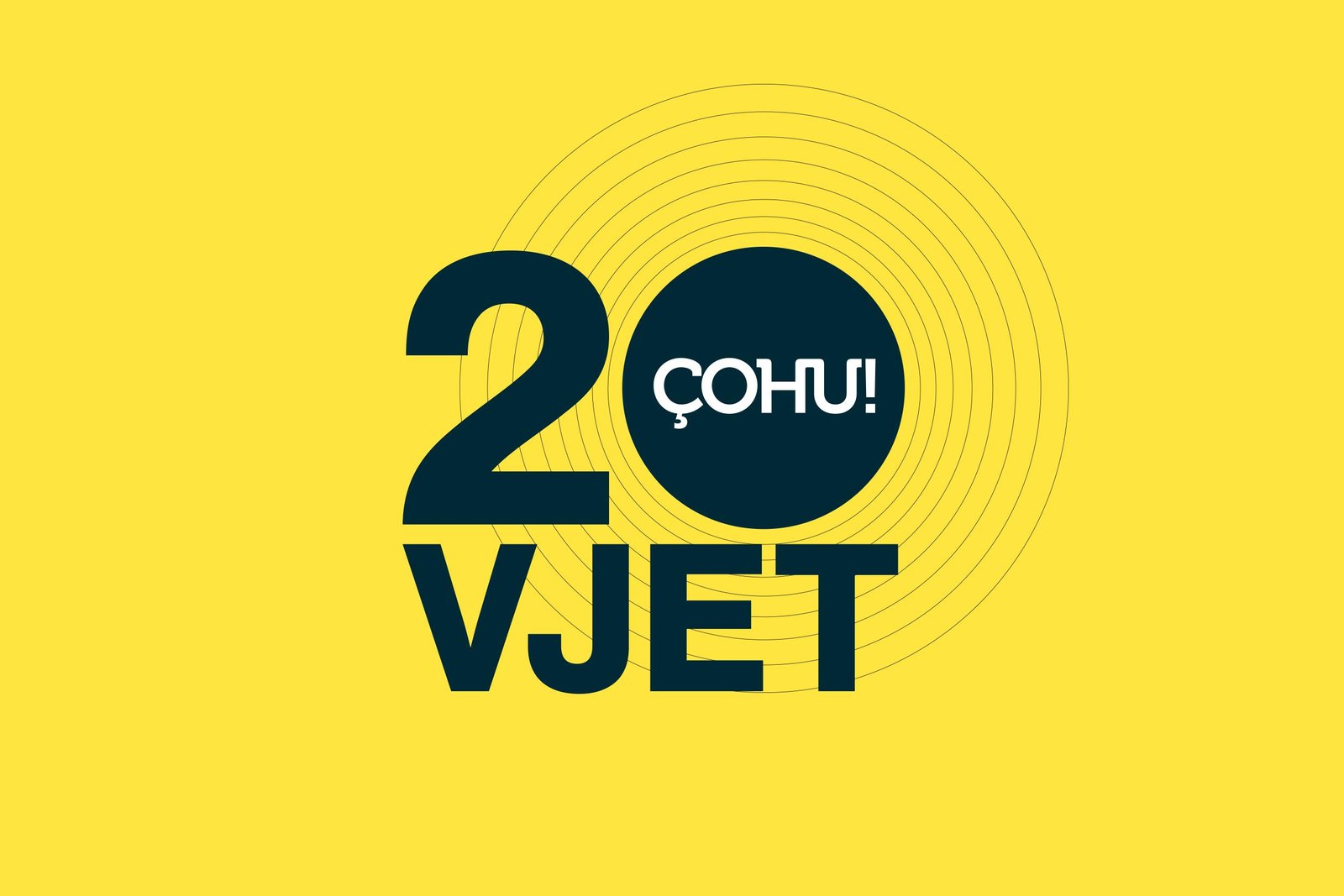The Organization for Democracy, Anti-Corruption and Dignity – ÇOHU! was founded in September 2005 with the mission to contribute to the consolidation of democracy as a system of political, social, and institutional values in Kosovo, as well as to play an exceptionally important role within civil society by combating corruption, organized crime, and political patronage, while simultaneously promoting active citizenship engagement for accountability, transparency, and inclusiveness.
In its early years, ÇOHU! developed and led major public debates and activities aimed at highlighting the challenges and abuses that characterized the period before Kosovo’s declaration of independence, including the privatization process, the double standards of justice applied by UNMIK and local institutions, as well as the development of new methods of civic engagement in the country.
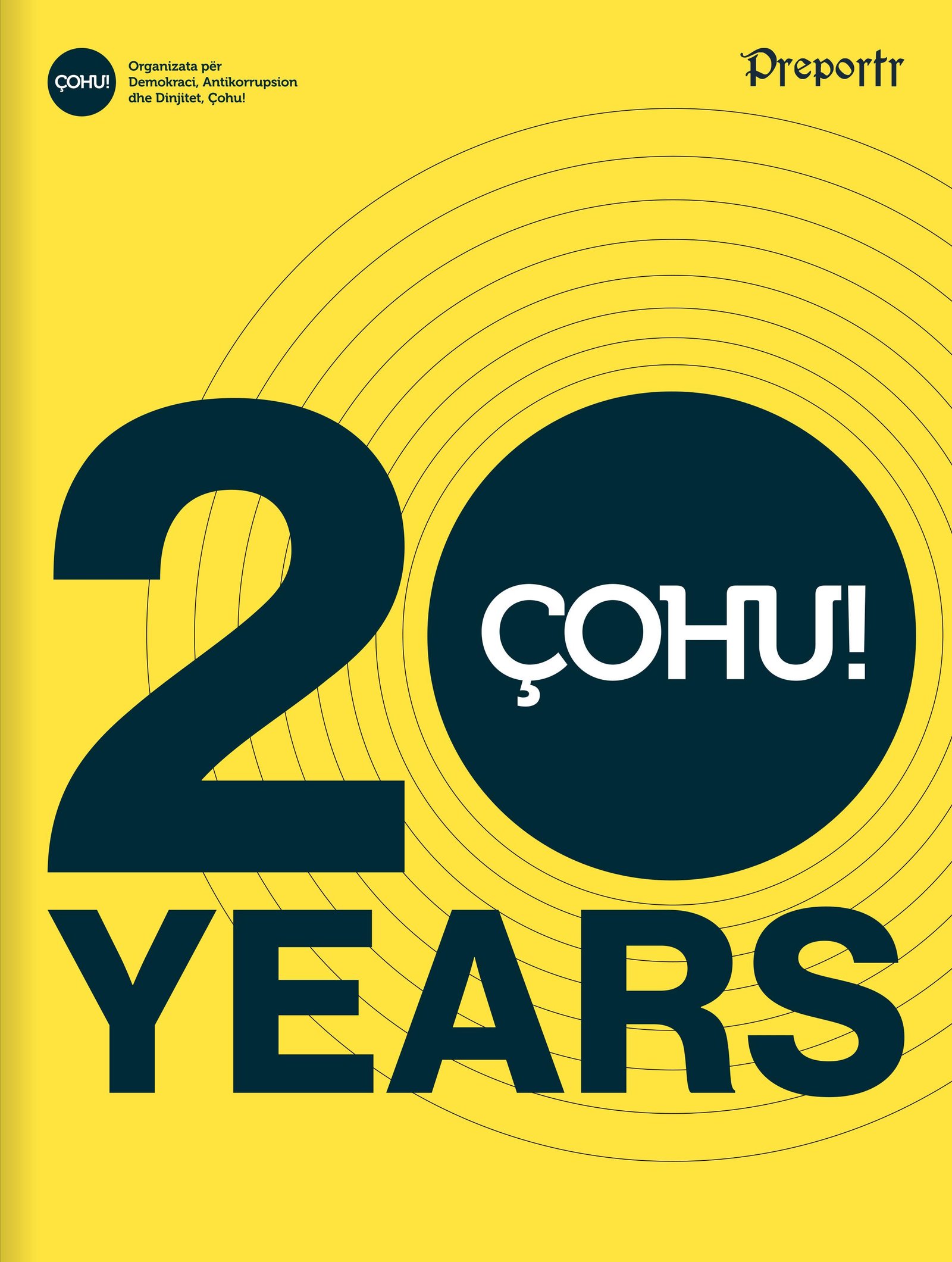 After the declaration of Kosovo’s independence and the establishment of constitutional institutions, ÇOHU! has focused on strengthening the justice sector through analyses, public policy work, advocacy for better legislation, and consistent monitoring of the rule of law. The organization has deepened its engagement in the fight against corruption and the abuse of public office, filing criminal complaints and closely monitoring corruption cases involving high-ranking public officials within the judicial system.
After the declaration of Kosovo’s independence and the establishment of constitutional institutions, ÇOHU! has focused on strengthening the justice sector through analyses, public policy work, advocacy for better legislation, and consistent monitoring of the rule of law. The organization has deepened its engagement in the fight against corruption and the abuse of public office, filing criminal complaints and closely monitoring corruption cases involving high-ranking public officials within the judicial system.
Alongside its consistent engagement in thematic areas such as political party finances, asset declaration and conflict of interest of public officials, confiscation of illicit assets, nepotism, patronage, and corruption in healthcare, education, and public institutions and with the aim of advancing investigative research ÇOHU! established its investigative media branch, Gazeta Preportr, in 2010. Thus, ÇOHU! adopted a multidimensional approach through reports, analyses, activities, and investigative journalism, combining these methods of work to achieve concrete results in research and advocacy.
Through its various investigations, Preportr has uncovered some of the biggest post-war scandals in Kosovo. In addition to numerous investigative publications, Preportr has directly contributed to the development of investigative journalism in the country by organizing, for 12 consecutive years, the School of Investigative Journalism, where over 300 journalists and civil society activists have been trained. Preportr’s work has been recognized with major awards for investigative journalism from both local and international institutions, including the European Union Awards for Investigative Journalism.
ÇOHU! has a structure composed of four sectors: The Justice and Anti-Corruption Pillar, Investigative Journalism, Good Governance, and the Open Data Platform, all of which have been developed over the years with the support of international donors. ÇOHU! is a member of the Organized Crime and Corruption Reporting Project (OCCRP), the world’s largest network for investigative journalism on organized crime and corruption as well as the Southeast Europe Leadership for Development and Integrity Network (SELDI) and is in the process of further internationalization through participation in global civil society and civic engagement forums.
Currently, ÇOHU! is focusing on addressing issues of public importance, including exposing corruption affairs in primary and secondary sectors, promoting human rights, protecting the environment, and developing analytical work on public policies and legislation in the Republic of Kosovo.
This year, ÇOHU! marks its 20th anniversary. Over two decades of continuous work, ÇOHU! has demonstrated that the fight against corruption and the building of democratic institutions require sustained commitment, integrity, and broad social cooperation. With a strong tradition in promoting transparency, accountability, and investigative journalism, the organization remains committed to continuing to be a powerful voice for citizens in defense of democracy, justice, and dignity.
Some of Çohu!’s Priorities Over the Years
Over the years, Çohu! has continuously produced reports and carried out activities against corruption, exposing corrupt practices and other abuses, opening important public debates, and advocating for institutional intervention even when the necessary institutional will and cooperation were lacking.
Justice and the rule of law have been among the key areas in which Çohu! has been actively engaged for two decades, through numerous reports and initiatives that have revealed extensive misuse and systemic shortcomings. One of the major issues Çohu! investigated and exposed for the first time several years ago was the statute of limitations of criminal cases. Çohu!’s research showed that more than 25,000 criminal cases were dismissed due to expiration between 2000 and 2019.
Even more concerning was the fact that many of these were corruption cases, meaning that the corrupt were escaping justice while their files, deliberately or negligently, remained buried at the bottom of court drawers across Kosovo. Çohu! also reported on the lack of accountability measures for judges whose cases were repeatedly dismissed due to the statute of limitations.
Monitoring of Courts and Other Key Focus Areas of Çohu!
Monitoring court proceedings related to corruption and organized crime cases has been one of Çohu!’s long-standing activities over the years. The organization has produced numerous reports highlighting systemic weaknesses, procedural flaws, and various challenges, while consistently offering concrete recommendations and referencing best practices from other countries to improve Kosovo’s justice system.
Public procurement has been another major focus of Çohu!, as it represents one of the main sources of corruption, manipulation, and misuse of public funds. In this regard, Çohu! has conducted several reports and analyses, and has monitored court cases dealing with abuse and fraud in public procurement. Findings from these reports, which revealed extensive irregularities and manipulations in procurement procedures, led Çohu! to elevate the issue to a matter of public debate and to successfully advocate for the inclusion of these offenses in the Criminal Code of Kosovo under a specific article.
Another consistent area of engagement for Çohu! has been asset declaration by public officials. Through in-depth research, analyses, and reports, the organization has exposed numerous deficiencies in the asset declaration process from the lack of accuracy and authenticity of declarations to the failures in verification mechanisms. Çohu! has continuously issued practical recommendations for improving this system.
Investigations carried out by Çohu! have revealed that the Anti-Corruption Agency often failed to conduct thorough verifications. While the Agency’s random checks frequently concluded that certain officials were compliant, Çohu!’s independent verifications conducted through municipal cadastral records uncovered numerous undeclared properties belonging to the same officials. Further investigations also showed that members of parliament and other public officials routinely failed to declare all their assets.
In light of these findings and the widespread false declarations by public officials, Çohu! prioritized and successfully advocated for the criminalization of false asset declarations, which are now recognized as a criminal offense in Kosovo’s Criminal Code.
In addition, Çohu! has filed criminal complaints with the prosecution authorities regarding these issues and other findings that emerged from its investigations.
Privatization, Public Enterprises, and the Çohu! Open Data Platform
The privatization of public enterprises, as well as their overall management, has consistently been among the central topics of Çohu!’s research and analysis. In addition to reports uncovering suspicions of abuse through the privatization process, special attention has been given to the case of Post and Telecom of Kosovo (PTK). Çohu!’s investigations revealed how PTK was captured, mismanaged, and systematically devalued over the years.
One of the most innovative initiatives developed by the organization is the Çohu! Open Data platform — one of the richest and most creative data platforms established by Çohu! over the years. Recognizing the complexity of certain research areas and with the goal of simplifying access to information while increasing transparency, the organization created this dynamic and user-friendly platform.
Currently, the platform hosts seven online databases, including:
1. Networking of Business and Political Connections
2. Financial Reports of Political Parties (2009–2016)
3. Political Patronage
4. Asset Declarations
5. Environmental Degradation
6. Open Justice
7. Disciplinary Measures in the Justice System
All these online databases present clear, accessible, and well-structured information, featuring data visualization tools and filtering options that allow users to easily explore and analyze different data sets.
Ethical Reporting and Media Education
In recent years, ethical reporting and media literacy have also become key priorities for Çohu!. The organization has conducted several studies on the challenges of ethical journalism. Over a period of four years, Çohu! has monitored dozens of online media outlets in both Albanian and Serbian to assess their compliance with the Press Code of Kosovo.
Hundreds of complaints were submitted to the Press Council of Kosovo, many of which were upheld. Following the submission of the first complaints, a noticeable improvement was observed, with the monitored media demonstrating greater ethical and professional care in their reporting.
Additionally, Çohu! has carried out trainings in 15 high schools across Kosovo, engaging over 400 students on topics related to disinformation and fake news, the target groups of such content, and the importance of verifying information before sharing or believing it.
Major Investigations by Preportr Over the Years
Beyond reports, recommendations, and various activities, Çohu!, through its investigative branch Preportr, has carried out detailed journalistic investigations. This has created a synergistic approach: Preportr has conducted investigations inspired by Çohu!’s work and reports, while, conversely, many journalistic investigations from Preportr have informed and strengthened Çohu!’s research and advocacy efforts.
Political Party Financing and Clientelism
The organization Çohu/Preportr has consistently addressed the issue of political party financing, viewing it as a central node where politics, business, and corruption intersect. From the very beginning, Çohu/Preportr saw party financing as a mechanism through which mutually beneficial relationships are created between political parties and private companies, where campaign contributions are often rewarded with public contracts.
While public discussions and debates on this issue existed, there was a lack of concrete data showing who donated, to which party, and how many public contracts they received in return.
The first major investigation in 2012, titled “100 Million”, revealed that 43 different entities, primarily construction companies and individuals, financed the Democratic Party of Kosovo (PDK), which was in power at the time and collectively benefited from over €100 million in public contracts across two electoral campaigns. Çohu! also carried out a symbolic action near the PDK headquarters, publicly presenting the findings on clientelism. The results of this investigation were even discussed in a plenary session of the Kosovo Assembly.
One of the most well-known follow-up investigations in this field by Çohu/Preportr was “The Politics of Money”, documenting that between 2007 and 2014, party financiers benefited from over €220 million in public contracts. In this and other reports, Çohu! highlighted the lack of financial transparency in party reporting, superficial oversight by auditors, conflicts of interest, and weak sanctions that failed to prevent the phenomenon.
For over a decade, Çohu! has consistently argued and demonstrated that party financing is the primary source of state capture, keeping this issue visible through publications, databases, and concrete investigations used by other media outlets and civil society organizations.
To make the data more accessible, understandable, and communicable to a wider audience, Çohu/Preportr also created an online database containing full details of political party donors. The database offers a visual network of clientelism, filtering options by donor/business name, political party, and the institution granting the contract. This platform is open and available to journalists, civil society, and other interested stakeholders.
Political Patronage
Clientelism and political patronage have been the two main pillars through which political parties in Kosovo have extended their influence over state institutions. Each ruling party has historically taken advantage of its position to employ its members in high-level leadership roles. This trend began with the previously dominant parties, PDK and LDK, and continued under AAK, NISMA, and more recently LVV. While this topic has been discussed sporadically, there was a lack of comprehensive and concrete data showing exactly who was appointed to these positions and what their political affiliations were.
To address this gap, Çohu/Preportr conducted three detailed investigations covering the period 2010–2021. The data from these studies confirmed that the influence of ruling parties on the appointment of their members to decision-making positions through public institution competitions was substantial. Across the three investigations, using a consistent methodology, it was found that 628 high-ranking officials with decision-making authority had formal ties to political parties during this period. All connections between public officials and political parties are presented in the Çohu Open Data online database. This database provides a clear overview of political patronage in Kosovo and illustrates how political parties have used power to place their members in key positions. The database offers multiple filtering options and includes: Names of high-ranking public officials, the institutions where they work, positions they hold, their associated political party (PDK, LDK, AAK, VV, etc.), description of the link, often documented through previous roles as candidates in national and local elections, members of parliament, or party officials, appointment dates and institutions where they were placed. These data have been continuously used by journalists and researchers and have been elaborated upon by Çohu!’s staff in various media outlets.
Environment
The environment has always been and remains one of Çohu!’s top priorities, especially over the past 15 years. One of the main goals in this field has been the application of investigative journalism to environmental issues. So far, dozens of in-depth investigations have been carried out on environmental topics.
They reveal the extensive degradation of nature in Kosovo from the extractive industry and forest destruction to river degradation caused by illegal operators and pollution, as well as institutional mismanagement, among others. The data collected over the years on environmental damage have been compiled and published in Çohu!’s online database.
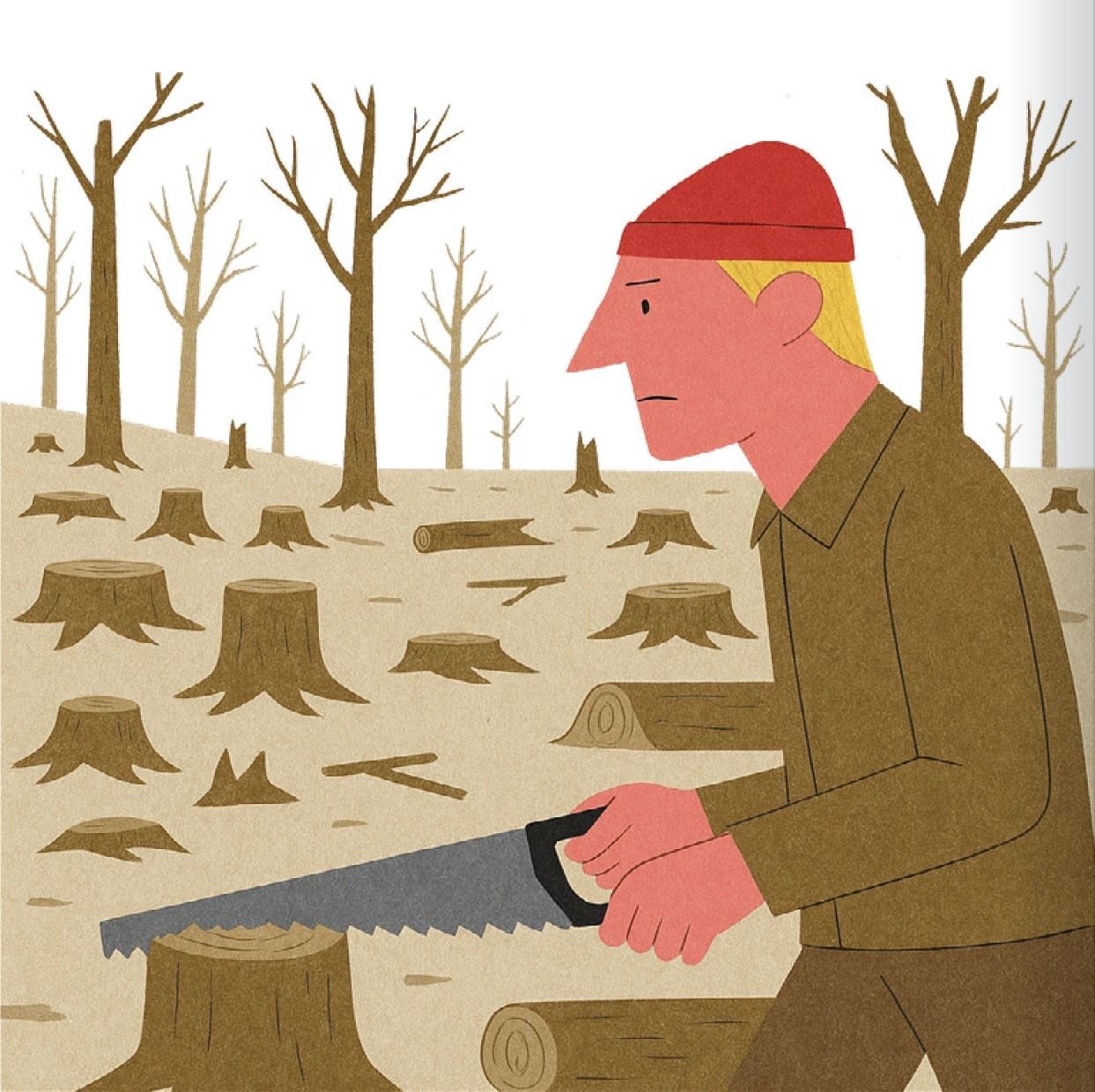
The data include the locations of sand, gravel, and stone extraction sites; the operators who obtained licenses and their political connections; as well as the degraded river areas which amount to over 1,100 hectares of environmental damage and dozens of illegal extraction sites.
The database has also been enriched with fieldwork findings, featuring not only descriptions of the areas where illegal operations took place, but also photographs that illustrate the situation on the ground as accurately as possible. These investigations have been followed by legal analyses, particularly focusing on the culture of impunity toward those responsible for environmental degradation, as well as the factual presentation of cases documented in the field.
In addition to investigative journalism, several analytical reports with concrete recommendations have also been produced. The findings have shown that environmental cases are among the most frequently dismissed or time-barred by the courts. Over the years, Çohu! has engaged in both research and advocacy on various environmental issues. Investigations conducted by Preportr over the years also show that more than 16,000 hectares of forest have been illegally cut down in the past two decades.
Another focus of the reporting has been the energy sector, corruption within KEK, and issues related to the energy transition. The reports highlight the dilemmas surrounding major projects such as the revitalization of the “Kosova A” power plant, the impact of hydropower plants on rivers and the destruction of aquatic ecosystems, the use of gas as an energy transition source amid significant uncertainties, as well as urban challenges where green spaces and cultural heritage are often neglected.
The investigations also focused on poor waste management at landfills, the lack of recycling, waste incineration, and the discharge of untreated wastewater into rivers all of which have serious health consequences for nearby residents. The research documents air pollution, with fine particulate matter concentrations far exceeding WHO standards. Some investigations have also examined air, water, and soil pollution caused by the Ferronikeli company. Many of these studies were accompanied by documentary films.
Education
Corruption and mismanagement in higher education in Kosovo, along with the lack of literature, quality issues, and politicization, have been recurring topics of numerous investigations conducted by Preportr over the past two decades. The investigations documented, through specific cases and simulations, how thesis topics were bought, how students engaged in continuous plagiarism, the lack of gradual assessment, and other similar practices.
Another prominent issue, which has been a focus of Çohu!’s investigations, concerns the deep politicization of public universities and its resulting consequences. A significant number of deans, vice-deans, and professors have held or continue to hold high political positions, affecting election processes, appointments, and academic quality. 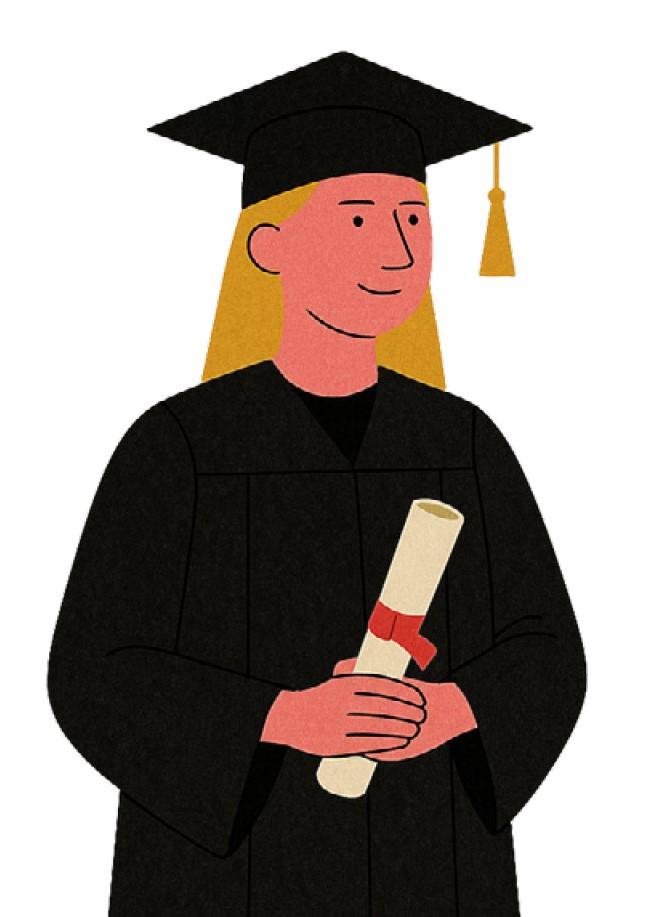
The investigations reveal a heavy dependence on external collaborators, including those from UP faculties, other public universities, and private colleges. Another notable practice is the additional payment for tasks considered part of a professor’s basic duties, such as administering exams and supervising theses, which often led to significant extra earnings and, at times, an excessive workload with students.
One of our priorities has been increasing transparency at UP. Çohu! raised issues such as the absence of academic staff CVs, highlighting it as a crucial element of transparency to know who is teaching students. Following public debates on this matter, positive changes were observed.
Inevitably, private colleges have been a focus of investigations over the years. The research revealed cases of corruption, favoritism, and various abuses. Thousands of students who had graduated from these colleges over the years were not officially recognized by the Ministry of Education, Science, and Technology (MAShT), effectively rendering them ungraduated. The investigations also showed how students were enrolled in non-accredited programs or beyond the quotas set by the Accreditation Agency, how original diplomas disappeared at MAShT, and other similar concerns. The lack of oversight of colleges by the Accreditation Agency has also been a recurring topic of interest in these investigations.
Workers’ Rights
Workers’ rights have been among the topics that Çohu/Preportr has prioritized over the years. Through dozens of investigations, interviews, and surveys, it has been documented how workers’ rights are being violated in the private sector.
The investigations show that a significant number of workers in the private sector are employed without work contracts, often work long hours without overtime pay, lack regular annual or weekly leave, and face unsafe conditions that frequently endanger their lives. Workers often hesitate to report employers due to fear of losing their jobs or facing other repercussions. Workplace safety issues have also been a priority in our work.
In this regard, investigations have also examined the inefficiency of the Labor Inspectorate, as well as the limited role of labor unions in protecting workers’ rights.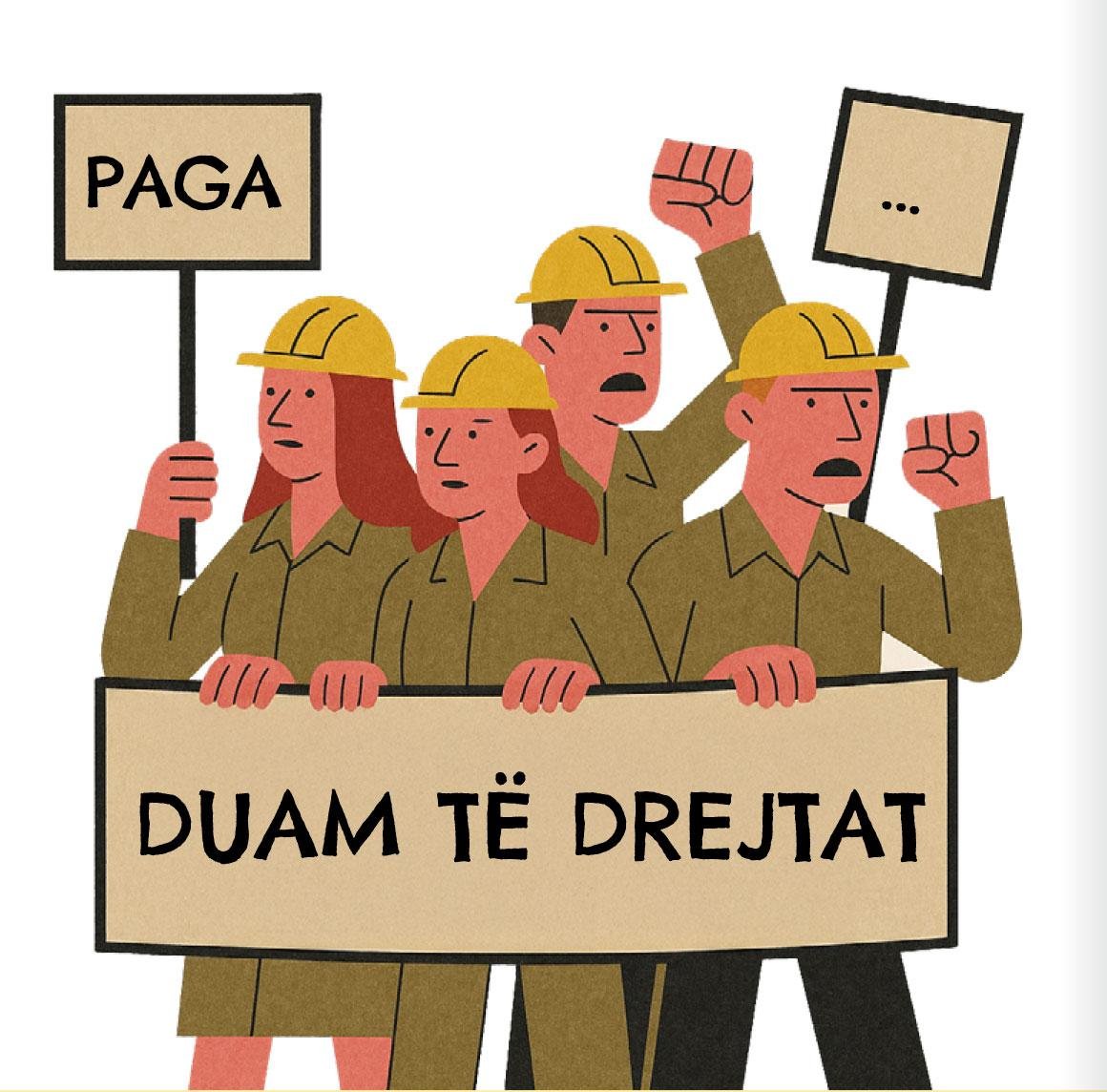
Additional Topics
Over the past 20 years, Çohu! has conducted dozens of other investigations covering areas of broad public interest, including healthcare, cultural heritage, the privatization of public enterprises, justice, human rights with a focus on pensioners, journalists, women, and children, restitution, asset declarations, local-level corruption, and many other topics. These investigations have highlighted the malfunctioning of institutions in addressing the issues affecting these areas, the failure to enforce laws, and the inadequate intervention of justice authorities.
Awards
Çohu/Preportr’s investigative journalists have so far won around 30 awards for their research, including three European Union Awards for Investigative Journalism. The recognized investigations cover various fields, such as corruption, human rights, environmental crimes, education, healthcare, and more. Our journalists have also received numerous local and regional grants, enabling them to carry out high-quality and impactful investigations across different sectors.
School of Investigative Journalism
The School of Investigative Journalism, organized by Çohu!, has introduced a new training approach focused on the use of investigative journalism methods. To date, 12 cohorts have been certified, comprising over 300 participants, primarily journalists, journalism students, and civil society activists. 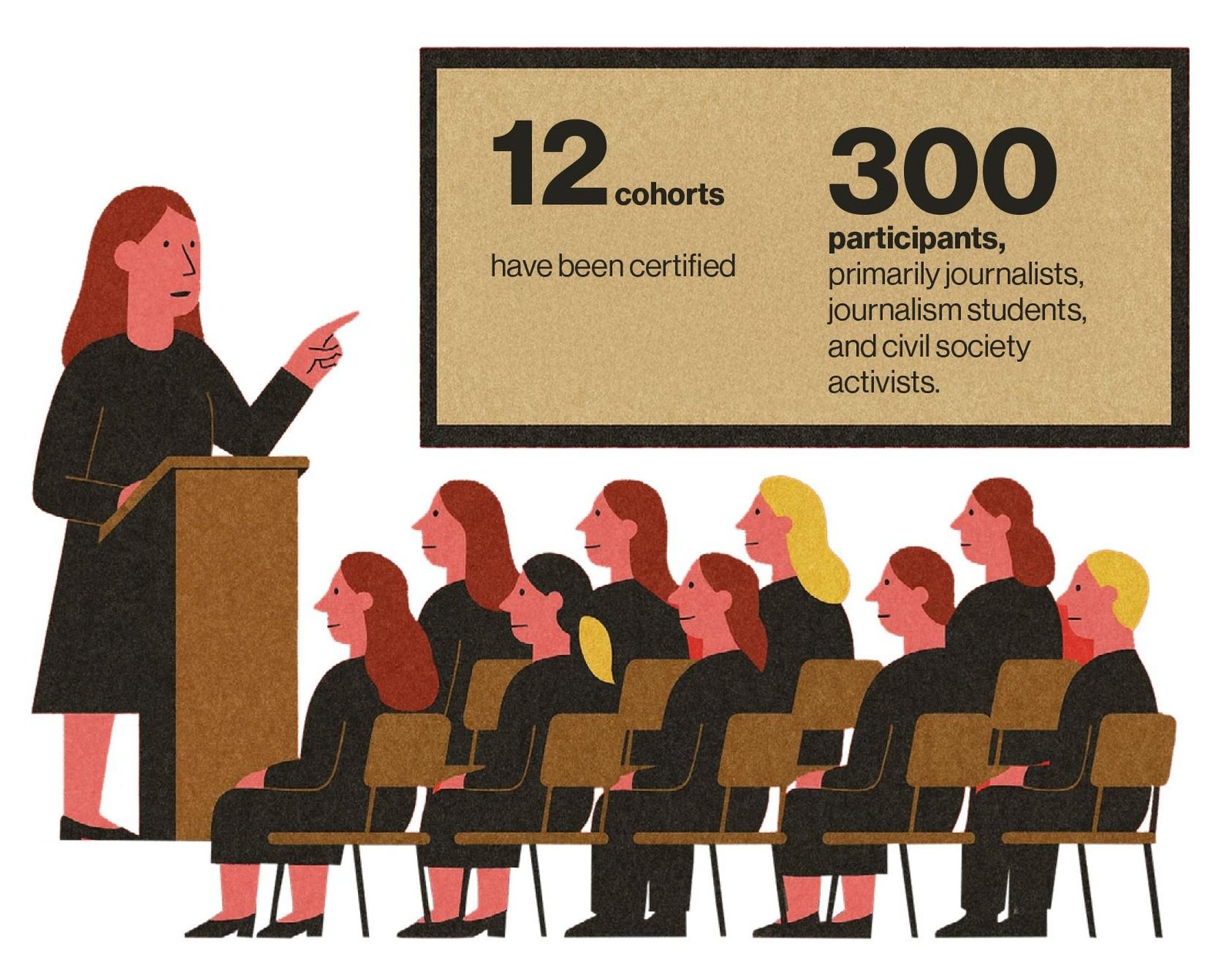 Initially, in addition to Çohu! journalists, who provided practical explanations on how they conducted their most important and complex investigations, the training sessions were also led by experienced journalists from the Romanian Center for Investigative Journalism. Later, the sessions continued with trainers from KRIK.
Initially, in addition to Çohu! journalists, who provided practical explanations on how they conducted their most important and complex investigations, the training sessions were also led by experienced journalists from the Romanian Center for Investigative Journalism. Later, the sessions continued with trainers from KRIK.
The training focuses on the practical demonstration of online research methods, such as investigating corruption and organized crime, advanced research using Google and social media, understanding how offshore companies operate and how to investigate companies worldwide, tracing politicians’ assets and creating a public online database, and secure communication techniques.
The training also emphasizes ethical and professional reporting, with sessions led by representatives from the Press Council of Kosovo. In recent years, participants have been awarded two grants for two teams, each guided by two mentors from Çohu!, enabling them to carry out investigations that apply the techniques learned during the training.
